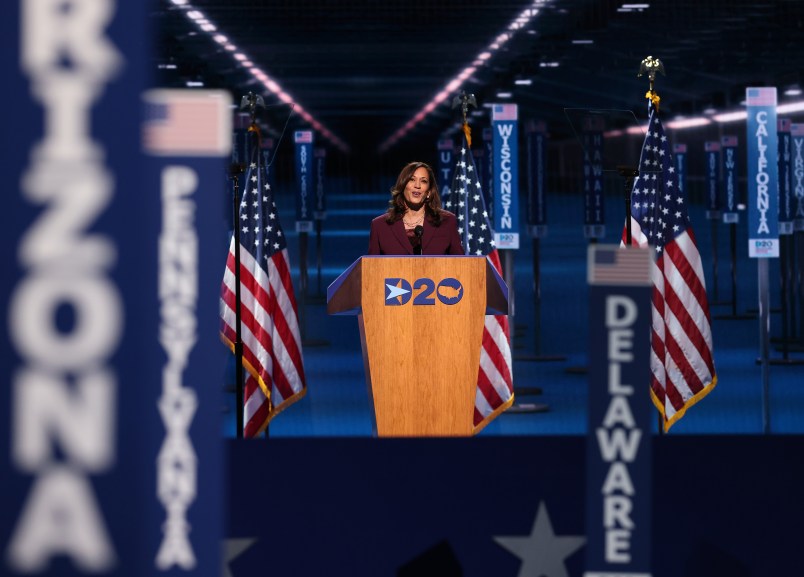As Hillary Clinton reminded viewers on the third night of the Democratic Convention, it has been an especially exhausting four years for women.
President Donald Trump was caught on tape bragging about committing sexual assault, has been accused of sexual misconduct by over 20 women and routinely saves special monikers — “nasty,” “dog,” “pig” — for his female opponents. It barely rates outrage anymore.
Rage at his triumph over Clinton fueled a millions-strong women’s march throughout the country and world in 2017. It sent women, especially those in the suburbs, to the polls in 2018, powering a massive blue wave. It inspired a record number of female lawmakers to run for office and ride that wave, the vast majority of them members of the Democratic party. It has Biden up an astronomical 21 points ahead of Trump with women, according to an NBC poll.
The third night of the convention felt like a tribute to that power.
It featured some of the party’s biggest power brokers. House Speaker Nancy Pelosi (D-CA), dressed in suffragette white, was introduced with a montage reminding viewers that she is the first and only female House Speaker. “The power of the speaker is awesome,” she says, as video of her ripping up Trump’s state of the union speech takes over the screen.
It showcased young activists like Emma Gonzalez and Carly Dryden, who survived gun violence and sexual assault respectively, to become the next generation of female leaders. Singer Billie Eilish, all of 18 years old, spoke eloquently about the direness of the election and the necessity for legislation to address climate change.
But the programming didn’t shy away from the hatred and violence women face either.
Clinton, also clad in white, reminded viewers that she hammered on the glass ceiling and won 3 million more votes than Trump — but that still wasn’t enough.
“For four years, people have told me ‘I didn’t realize how dangerous he was. I wish I could do it all over.’ Or, worse, ‘I should have voted,'” she said. “Look, this can’t be another woulda, coulda, shoulda election.”
The package on domestic violence opened with Ruth Glenn, CEO of the National Coalition Against Domestic Violence, telling her story in a flat tone, devoid of emotion.
“In 1992, my husband shot me and left me for dead,” she said.
Nominee Joe Biden was sprinkled throughout the segments, sober in clips where his younger self listened to women testify about being beaten by their partners as he worked to get the Violence Against Women Act created and passed in Congress.
But the night was Harris’. As she took the stage, introduced by the first Black president, the power of the moment was undeniable. In the face of a President who routinely demeans and despises women stood the first Black and first Asian-American woman to be nominated as vice president on a major party’s ticket.
“I know a predator when I see one,” she said, while speaking about her experience in fighting for victims of sexual assault and against criminal organizations.
And she placed herself where she belongs — pounding against that same glass ceiling, raised up on the shoulders of women who came before.
“Without fanfare or recognition they organized and testified and rallied and marched and fought not just for their vote but for a seat at the table,” she said of Black women excluded from the suffrage movement. “These women and the generations that followed worked to make democracy and opportunity real in the lives of all of us who followed.”
“They paved the way for the trailblazing leadership of Barack Obama and Hillary Clinton,” she added. “And these women inspired us to pick up the torch and fight on.”



